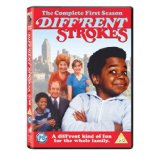![Bananas [1971]](/pictures/1016140.jpg) Bananas | DVD | (19/02/2001)
from £8.42
| Saving you £7.57 (89.90%)
| RRP
Bananas | DVD | (19/02/2001)
from £8.42
| Saving you £7.57 (89.90%)
| RRP Woody Allen's second film as a director was a wild, unpredictable and unlikely comedy about a product-tester named Fielding Mellish (Allen), who can't quite connect with the woman of his dreams (Louise Lasser, Allen's ex-wife). He accidentally winds up in South America as a freedom fighter for a guerrilla leader who looks like Castro. Once he assumes power, the new dictator quickly goes insane--which leaves Fielding in charge to negotiate with the US. The film is chockfull of wonderfully bizarre gags, such as the dreams Fielding recounts to his shrink about dueling crucified messiahs, vying for a parking place near Wall Street. Look for an unknown Sylvester Stallone in a tiny role--but watch this film for Allen's surprisingly physical (and always verbally dexterous) humour. --Marshall Fine
![Postcards From The Edge [1990]](/pictures/1018359.jpg) Postcards From The Edge | DVD | (08/03/2004)
from £4.19
| Saving you £1.80 (30.10%)
| RRP
Postcards From The Edge | DVD | (08/03/2004)
from £4.19
| Saving you £1.80 (30.10%)
| RRP A film by Mike Nichols of Carrie Fisher's semi-autobiographical novel, Postcards from the Edge is an intermittently hilarious, occasionally tear-stained account of an actress' struggle with addiction and with her competitive star mother. Meryl Streep turns in yet another flawlessly perfect performance as Suzanne, who is coping with cleaning up while making yet another idiot cop film. Shirley Maclaine is effective and overpowering as her hard-drinking Old Hollywood star mother perpetually trying to remould her daughter, singing Sondheim songs at parties, showing off her still-perfect legs and occasionally driving into trees. Among the many guest stars, Dennis Quaid is self-effacingly unpleasant as an unreliable boyfriend, Gene Hackman charismatic as a fatherly director and Annette Benning impressive in a cameo as a starlet rival. Nichols' standard slickness is very much on display here; this is perhaps too obviously manipulative a film in which the emotional detail is never quite as impressive as the central performances and script deserve. On the DVD: The DVD takes the rather subversive risk of giving the commentary role to Carrie Fisher, who discusses entertainingly how the screenplay evolved from her original novel, occasionally making clear that certain sentimentalisations of the characters were not her idea; she argues coherently that the film makes Meryl Streep's character a little too much the martyr. She also gives us a lot of faintly scurrilous Hollywood and family gossip. It also provides the theatrical trailer and filmographies for the director and major players. --Roz Kaveney
![Tupac - Resurrection [2004]](/pictures/1031861.jpg) Tupac - Resurrection | DVD | (13/09/2004)
from £8.99
| Saving you £7.00 (77.86%)
| RRP
Tupac - Resurrection | DVD | (13/09/2004)
from £8.99
| Saving you £7.00 (77.86%)
| RRP The first authorised documentary about the life of rap artist Tupac Shakur.
 Diff'rent Strokes - Series 1 - Complete | DVD | (06/10/2008)
from £34.99
| Saving you £-10.00 (N/A%)
| RRP
Diff'rent Strokes - Series 1 - Complete | DVD | (06/10/2008)
from £34.99
| Saving you £-10.00 (N/A%)
| RRP Whatchoo talkin' 'bout Willis? When pint-sized Gary Coleman uttered that phrase to his TV brother played by Todd Bridges audiences were hooked and a star was born. But the show's popularity was based on more than the rise of the diminutive wisecracking Coleman. Diff'rent Strokes was a pop culture phenomenon that broke through cultural barriers as well. The story of two African-American kids from Harlem who move to Park Avenue to live with a wealthy white widower (Conrad Bain) and his precocious teenage daughter (Dana Plato) not only gave audiences lots to laugh about but gave them something to talk about. Along with their no-nonsense housekeeper (Charlotte Rae) this group was anything but average - but they reflected the changing face of the American family and brought issues of race and class into households across the nation.
![Child Bride Of Short Creek [1981]](/pictures/1016715.jpg) Child Bride Of Short Creek | DVD | (15/08/2005)
from £7.98
| Saving you £1.00 (16.69%)
| RRP
Child Bride Of Short Creek | DVD | (15/08/2005)
from £7.98
| Saving you £1.00 (16.69%)
| RRP Partially based on the true events surrounding a rural religious cult in the American Midwest and how the members' children suffered for their parents' fanaticism. 19 year old Isaac King returns from the Korean war to become frustrated and discouraged by his village's blind acceptance of the Brethren's strict doctrines. He falls in love with Jessica Ray Jacobs a 15 year old who is promised in marriage to Isaac's father Frank a devout town leader. Rebelling against Short Creek's c

Please wait. Loading...
This site uses cookies.
More details in our privacy policy